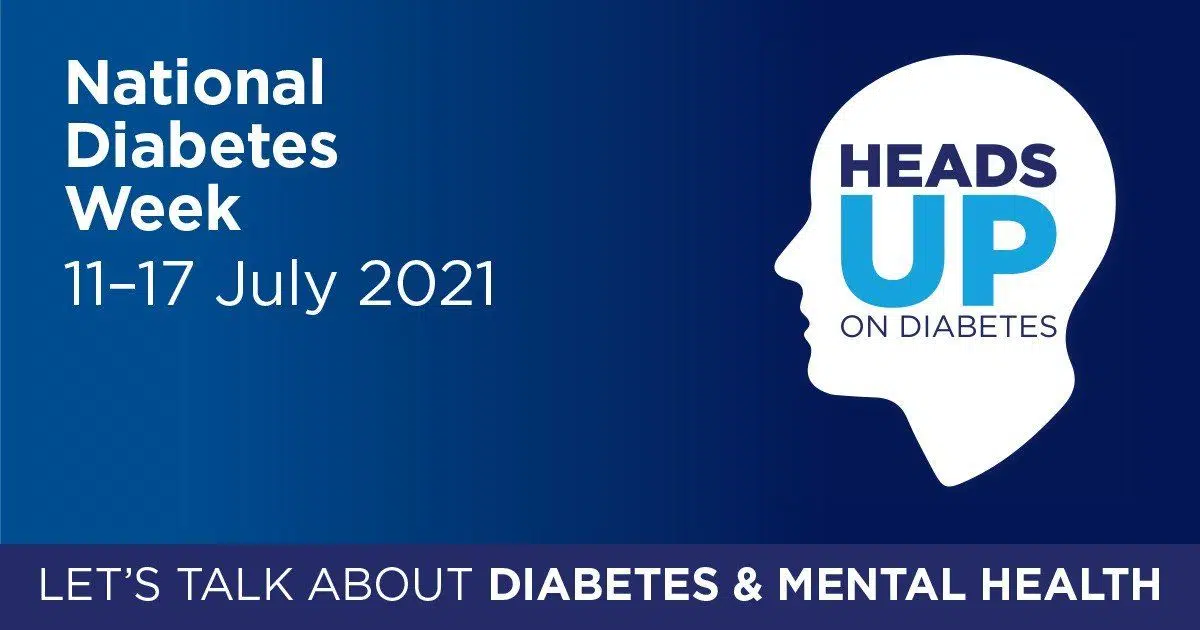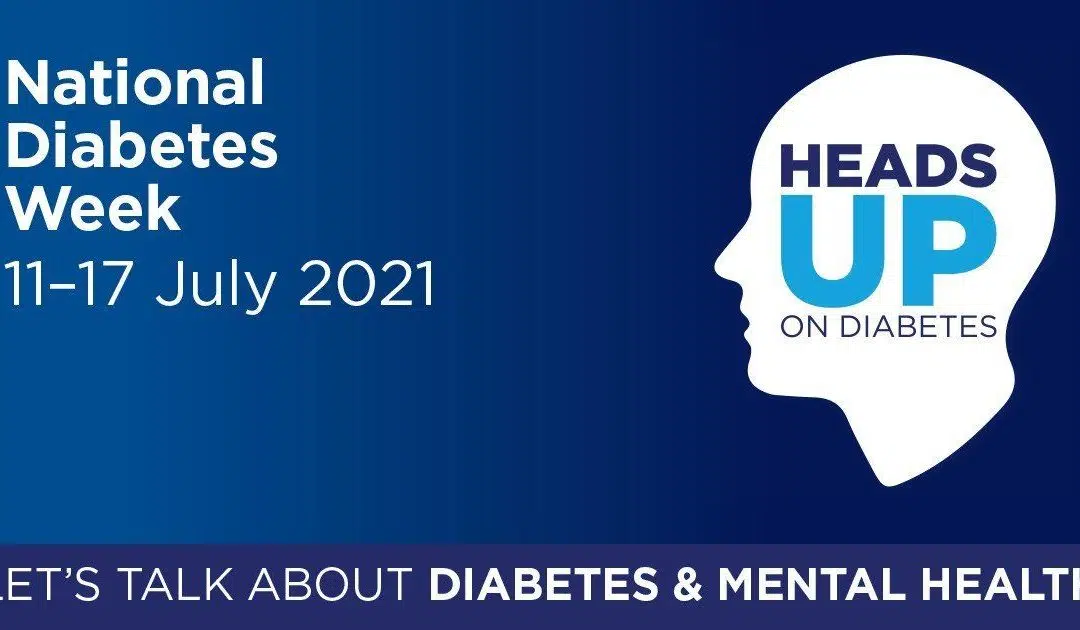Lifestyle Interventions For The Prevention Of Diabetes
Last week was National Diabetes Week and around 1.8 million Australians have diabetes.
This includes all types of diagnosed diabetes (1.3 known and registered) as well as silent, undiagnosed type 2 diabetes (up to 500,000 estimated).
An estimated 2 million Australians have impaired glucose tolerance or impaired fasting glucose (collectively pre-diabetes) and are at high risk of developing type 2 diabetes in coming years.
Evidence shows type 2 diabetes can be prevented in up to 58% of high-risk cases.
290 Australians develop diabetes every day. That’s one person every five minutes.

Today, diabetes is a leading cause of heart disease, stroke, blindness, kidney failure, and lower limb amputation.
There is no such thing as ‘mild’ diabetes.
All types of diabetes are serious, progressive and complex diseases which can have a major impact on quality of life and life-expectancy.
Early diagnosis, optimal treatment and effective ongoing support and management reduce the risk of diabetes-related complications.
Diabetes:
• is a leading cause of blindness in working age adults8
• is a leading cause of kidney failure and dialysis9
• is the leading cause of preventable limb amputations10
• increases the risk of heart attacks and stroke by up to four times.11
But by adopting healthy lifestyles, including consuming a nutritious diet and exercising regularly, we can prevent 80% of cases of type 2 diabetes.
Type 1 Diabetes
Every year 640 children and adults are admitted to hospital because the early signs of type 1 diabetes are missed. If not diagnosed in time, type 1 diabetes can be fatal. It’s about time you took the time to learn the 4 T’s – the early warning signs of type 1 diabetes. It takes just a minute to learn. If you see the signs, don’t waste time and see you doctor immediately. If not diagnosed in time it can be fatal.
Learning the 4T’s could just save a life.
Toilet – going to the toilet a lot
Tired – unexplained or excessive fatigue
Thirsty – a thirst that can’t be quenched
Thinner – sudden or unexplained weight loss
Type 2 Diabetes
Many Australians will live with type 2 diabetes for up to seven years before being diagnosed. More than 500,000 Australians are living with silent, undiagnosed type 2 diabetes. If not diagnosed in time, it can cause blindness, kidney damage, amputation and heart attack.
Although you can develop type 2 diabetes at any age, your risk increases if you are over 40, especially if you are overweight or have a family history of type 2 diabetes. It’s about time you took the time to get checked. A type 2 diabetes risk check only takes a minute. The earlier people are diagnosed, the more time they have to live well and reduce their risk of complications.
During this time, type 2 diabetes can do serious harm and lead to:
Blindness
Kidney damage
Amputation
Heart attack and stroke
Gestational diabetes is a form of diabetes that occurs in between 12-14 per cent of pregnancies and usually disappears after birth. It significantly increases a woman’s risk of developing type 2 diabetes in the future
Prevention is the best option
While it is important to diagnose and treat diabetes the best option is prevention.
Using nutrition, exercise, stress reduction, sleep and minimising alcohol and recreational drugs we can treat, reverse and prevent diabetes.
Lifestyle interventions have been found to be one of the most effective options for diabetes treatment and reversal. The DiRECT trial1 showed that on average, 46% of those put on a low-calorie diet could reverse their diabetes in just 8 weeks. And even more impressive was that diabetes reversal was achieved in 86% of the patients who lost more than 15kg. It is not only about losing weight; it is also about optimising nutrition to reverse diabetes and improve long term outcomes.
Exercise is an important part of diabetes management, reversal and prevention. Movement re-sensitizes the body to insulin uses stored sugars and fats and improves diabetic (HbA1c) control by on average 0.75% (which is more than many common medications). It improves people’s mood, emotional health and motivation levels.
Part of chronic disease is increased stress which encourages people to eat in an unhealthy way, not exercise and not sleep. It increases oxidative stress in the body and increases inflammation. Stress management and sleep improvement therefore plays a key role is diabetic management. In a recent meta-analysis majority of the trials revealed that patients with type 2 diabetes who were randomly assigned to psychological intervention improved their mean HBA1C by 76% more than people without psychological intervention.
The next area of lifestyle medicine that is beneficial for diabetes management and reversal is sleep
Improvement. Obstructive sleep apnoea worsens control of diabetes and contributes to Diabetes related complications. It is also an independent risk factor for ischaemic heart disease, hypertension and stroke.
Decrease In alcohol consumption and recreational drugs will improve sleep, decrease stress, improve diabetic control and prevent long term Complications of diabetes. Psychological strategies are also needed. To help patients deal with underlying reasons for hazardous substance use and provision of support during this shift to a healthier lifestyle.
Though the changes needed can be significant they will ensure healthier and longer life for majority of people. So why not speak to your health professional about lifestyle intervention.
1 Lee, C., Colagiuri, R., Magliano, D., Cameron, A., Shaw, J., Zimmet, P. and Colagiuri, S. (2013). The cost of diabetes in adults in Australia. Diabetes Research and Clinical Practice, 99(3), pp.385-390.
2 National Diabetes Services Scheme figures.
3 IDF Diabetes Atlas. (2015). Brussels: International Diabetes Federation.
8 Shaw, J., Tanamas, S., eds. (2012). Diabetes: the silent pandemic and its impact on Australia. Melbourne: Baker IDI Heart and Diabetes Institute.
9 Tanamas, S.K., Magliano, D.J., Lynch, B., Sethi, P., Willenberg, L., Polkinghorne, K.R., Chadban, S., Dunstan, D., Shaw, J.E. (2013). AusDiab 2012. The Australia Diabetes, Obesity and Lifestyle Study. Melbourne: Baker IDI Heart and Diabetes Institute.
10 Shaw, J., Tanamas, S., eds. (2012). Diabetes: the silent pandemic and its impact on Australia. Melbourne: Baker IDI Heart and Diabetes Institute.
11 Shaw, J., Tanamas, S., eds. (2012). Diabetes: the silent pandemic and its impact on Australia. Melbourne: Baker IDI Heart and Diabetes Institute





Recent Comments